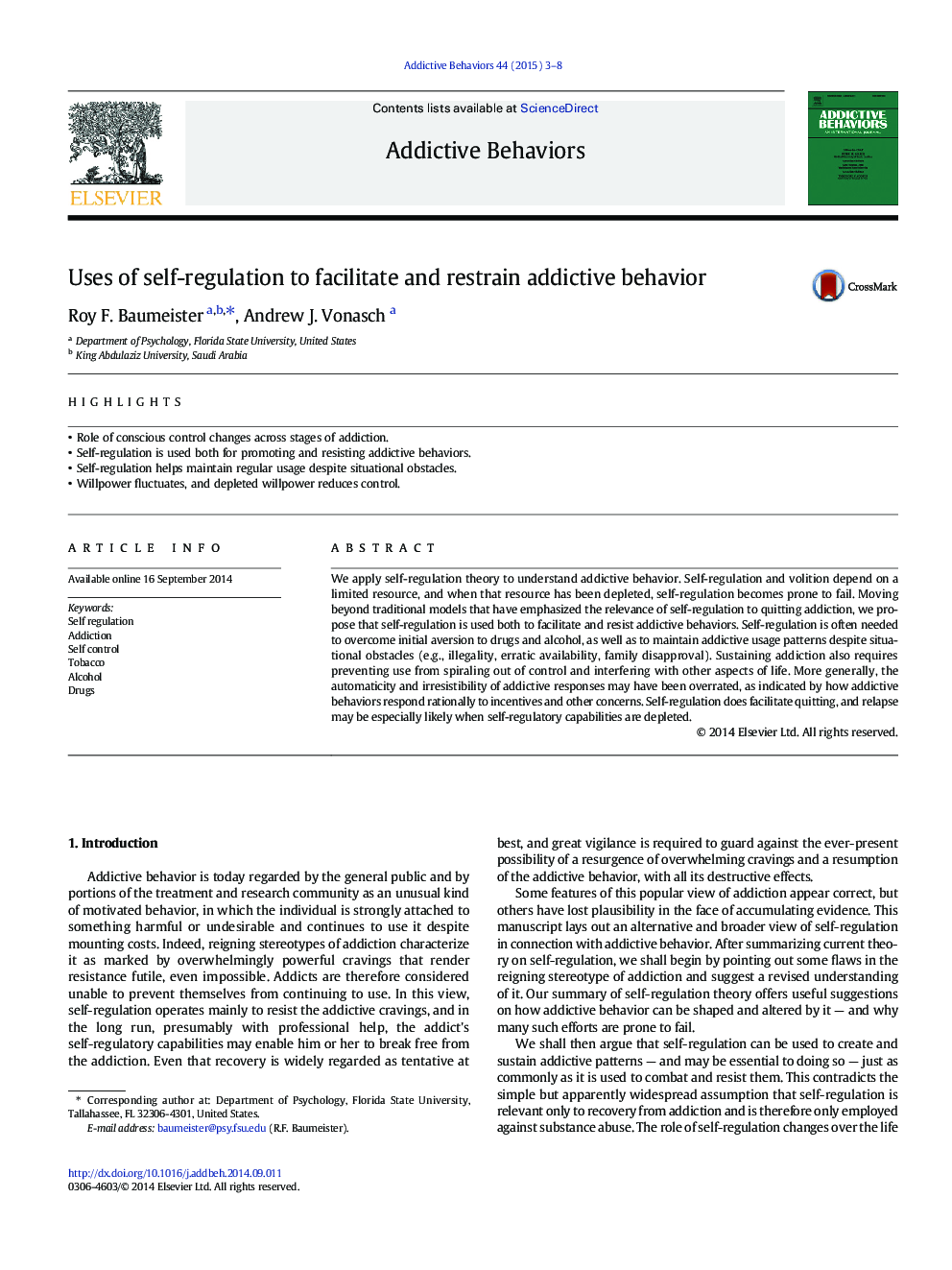| کد مقاله | کد نشریه | سال انتشار | مقاله انگلیسی | نسخه تمام متن |
|---|---|---|---|---|
| 898697 | 1472527 | 2015 | 6 صفحه PDF | دانلود رایگان |
• Role of conscious control changes across stages of addiction.
• Self-regulation is used both for promoting and resisting addictive behaviors.
• Self-regulation helps maintain regular usage despite situational obstacles.
• Willpower fluctuates, and depleted willpower reduces control.
We apply self-regulation theory to understand addictive behavior. Self-regulation and volition depend on a limited resource, and when that resource has been depleted, self-regulation becomes prone to fail. Moving beyond traditional models that have emphasized the relevance of self-regulation to quitting addiction, we propose that self-regulation is used both to facilitate and resist addictive behaviors. Self-regulation is often needed to overcome initial aversion to drugs and alcohol, as well as to maintain addictive usage patterns despite situational obstacles (e.g., illegality, erratic availability, family disapproval). Sustaining addiction also requires preventing use from spiraling out of control and interfering with other aspects of life. More generally, the automaticity and irresistibility of addictive responses may have been overrated, as indicated by how addictive behaviors respond rationally to incentives and other concerns. Self-regulation does facilitate quitting, and relapse may be especially likely when self-regulatory capabilities are depleted.
Journal: Addictive Behaviors - Volume 44, May 2015, Pages 3–8
